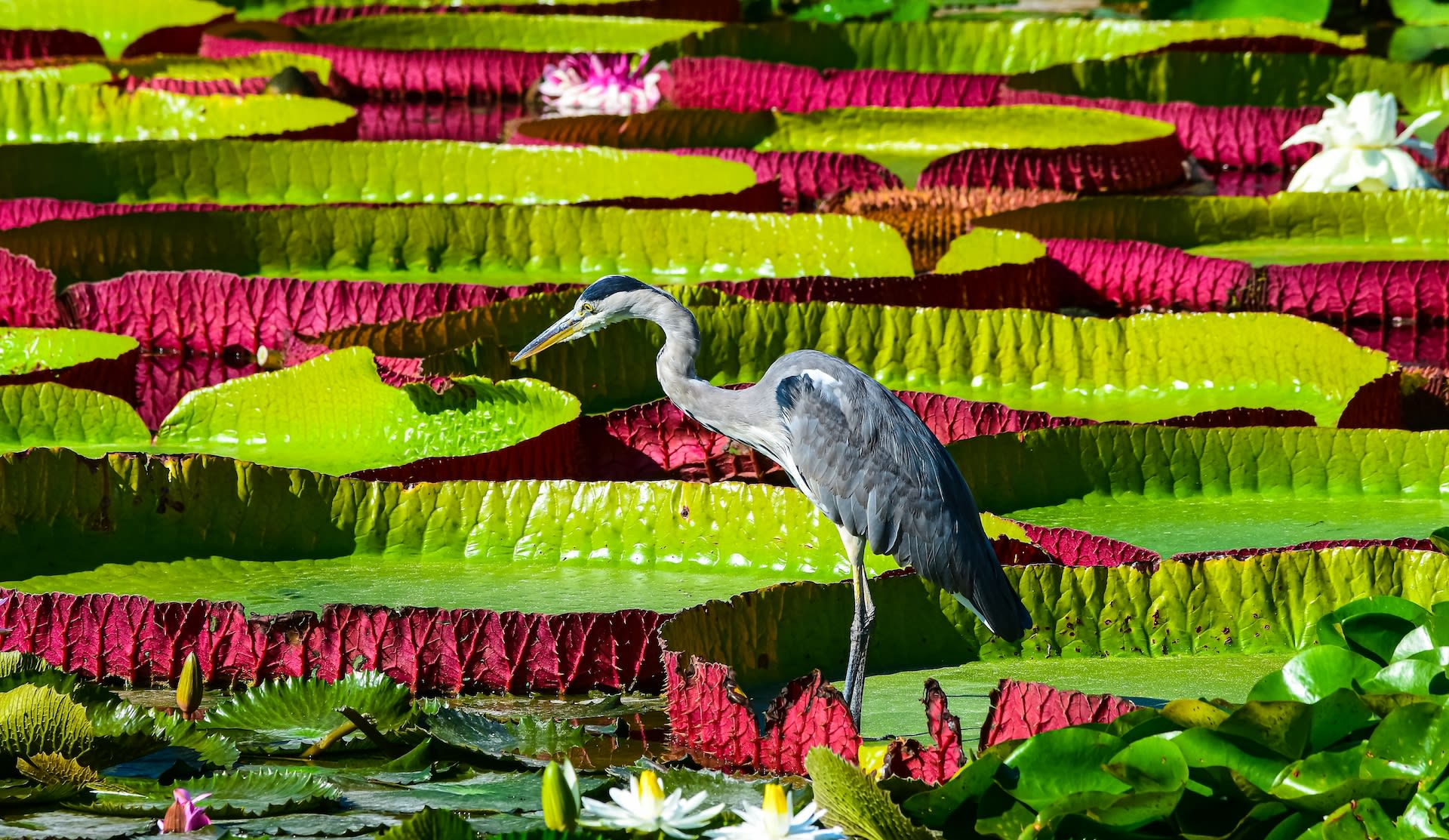
Unidentified Floating Objects
Plant Traits
4.7
(375 reviews)
Scroll for prep
This is a teacher-led
and teacher-narrated lesson for more open-ended discussion.
Learn more about the Anchor Layer here,
or click next to get started!
or click next to get started!


Please wait…
This video is having trouble loading. You may have lost your Internet connection.
Step 1: Click to Reload this page
Step 2: Click to
Try our other video player
Step 3: Contact your teacher if trouble persists.
Or,
dismiss this message.
When people go swimming, they use different things to help them float. Watch
this video, then discuss. What are the different things you saw that help people
float? Do you know of any other things that help people float?

Please wait…
This video is having trouble loading. You may have lost your Internet connection.
Step 1: Click to Reload this page
Step 2: Click to
Try our other video player
Step 3: Contact your teacher if trouble persists.
Or,
dismiss this message.
Sometimes other animals like to float, too. Watch, then discuss. What is this
floating thing?

Please wait…
This video is having trouble loading. You may have lost your Internet connection.
Step 1: Click to Reload this page
Step 2: Click to
Try our other video player
Step 3: Contact your teacher if trouble persists.
Or,
dismiss this message.
There is another thing that people and other animals use to float. This one is very
different from the other things you saw, and it is very strange. Watch, then
discuss. Have you ever seen anything like this before?
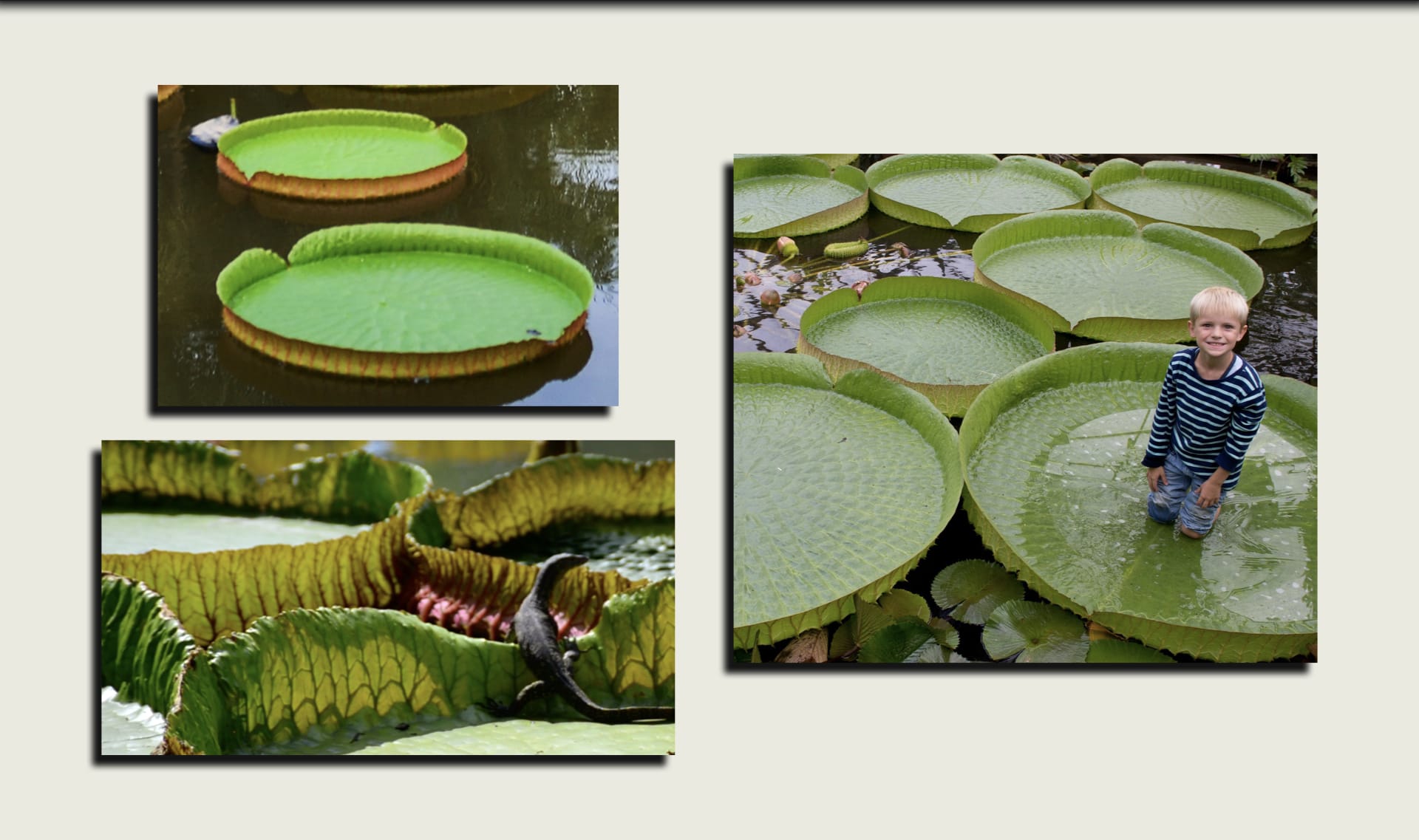
These are very, very big floating things! Let’s see if we can figure out what they
are and where they came from.
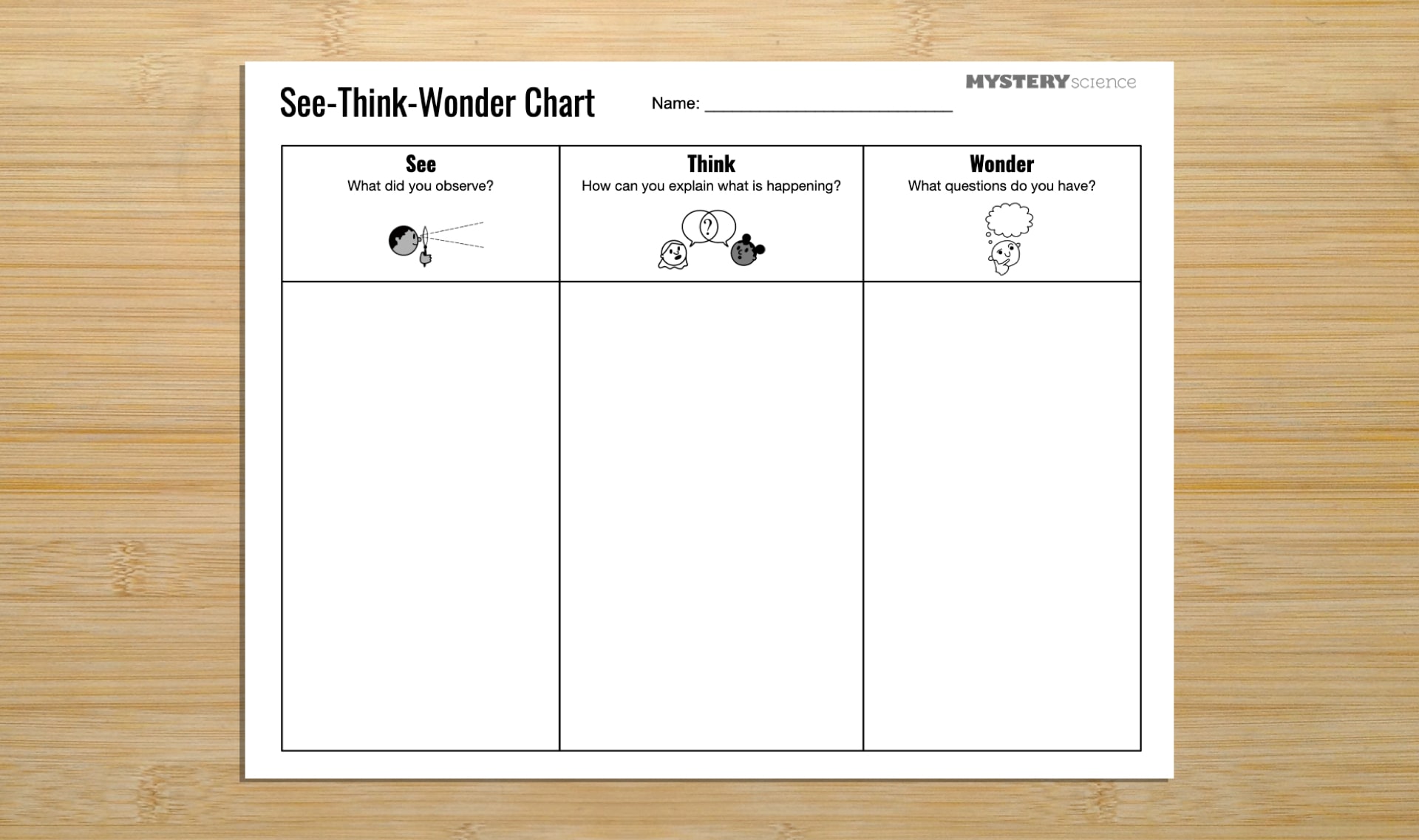
Get a See-Think-Wonder Chart, or make your own with a large sheet of paper.
Your teacher will add your ideas to the class chart.
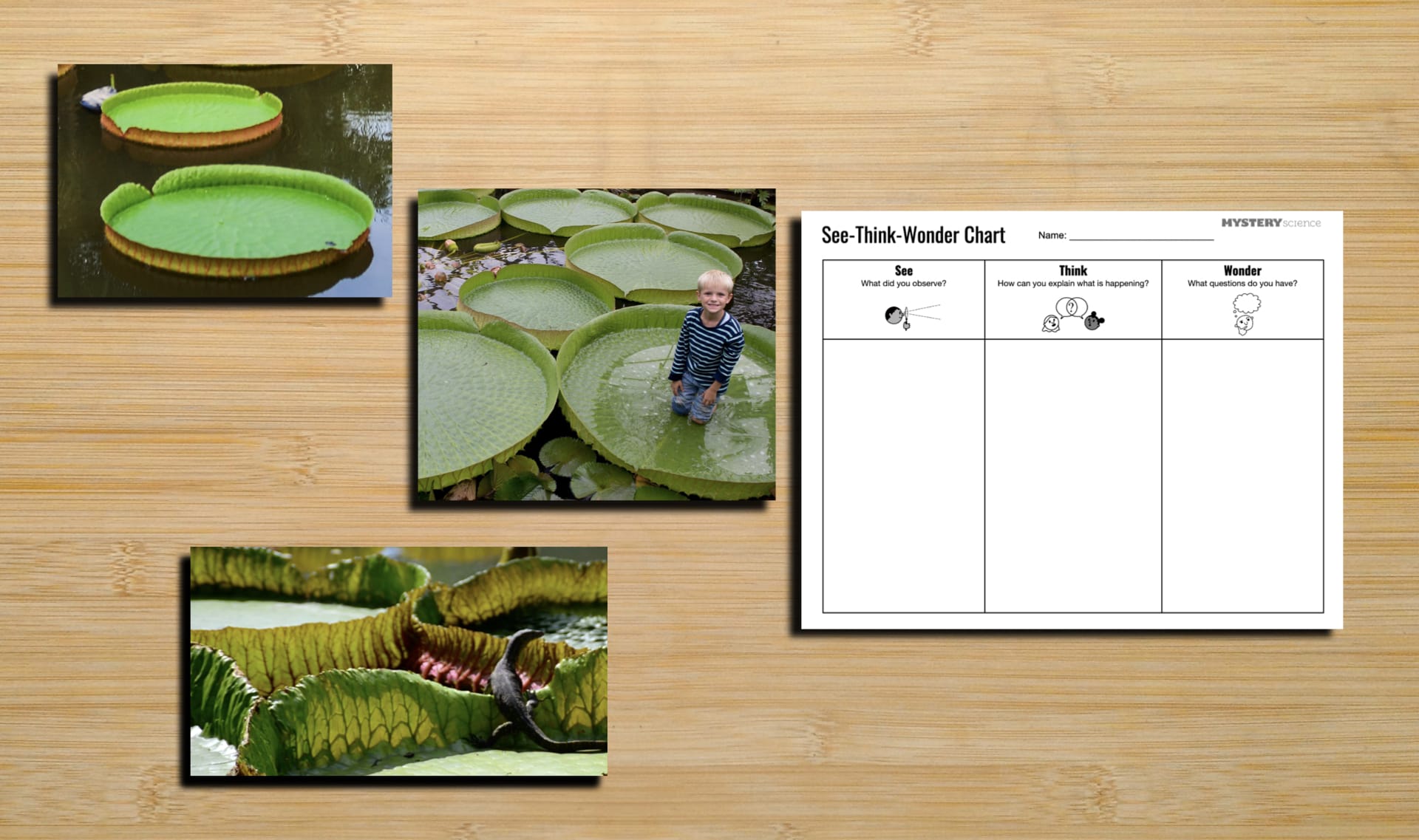
Look closely at the floating things. Then, discuss. What did you see? Your teacher
will record your answers in the See column of your chart.
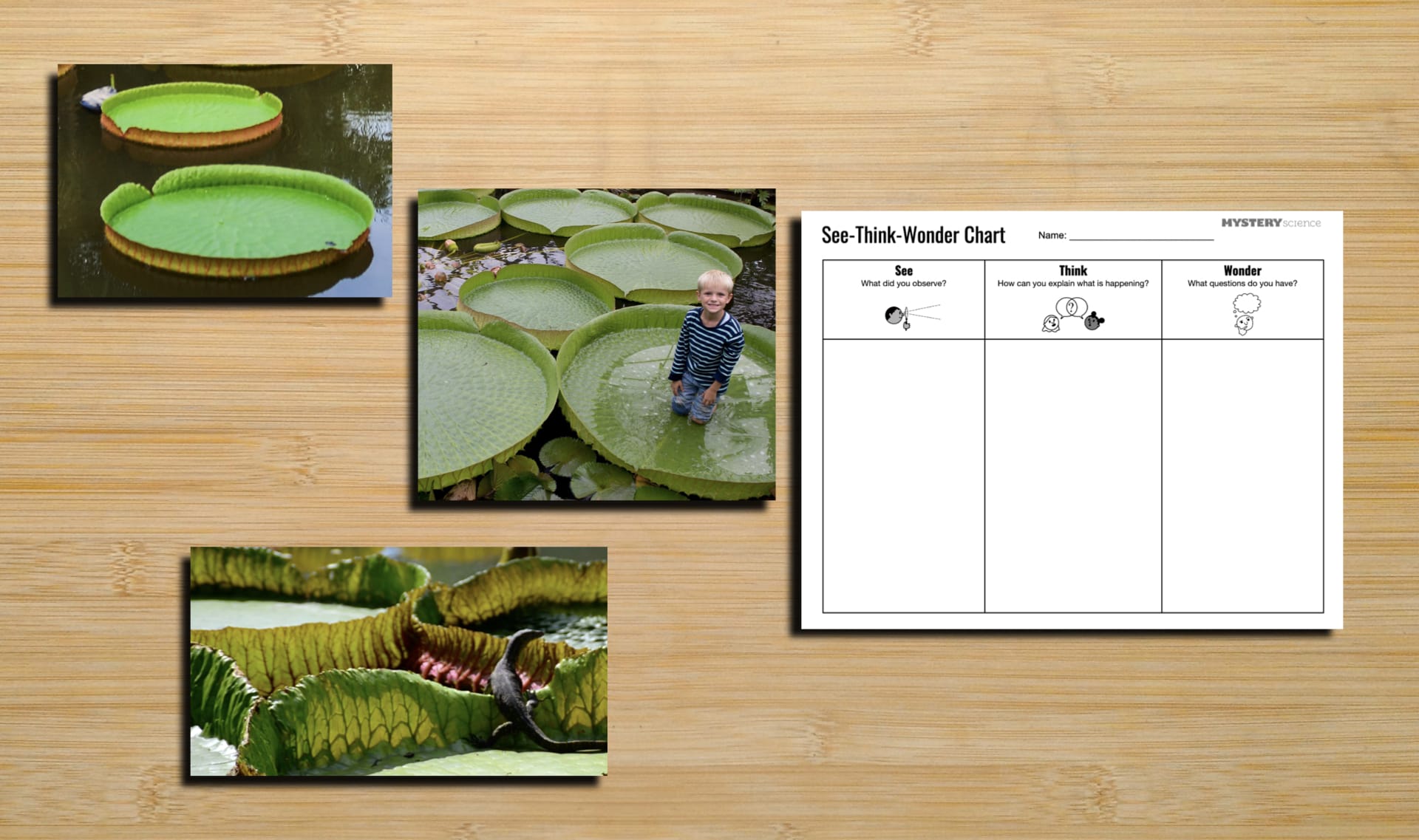
What do you think these floating things are? Where do you think they came from?
How do you think they are strong enough to hold up a person? Come up with as
many ideas as you can. Your teacher will record your answers in the Think column
of your chart.
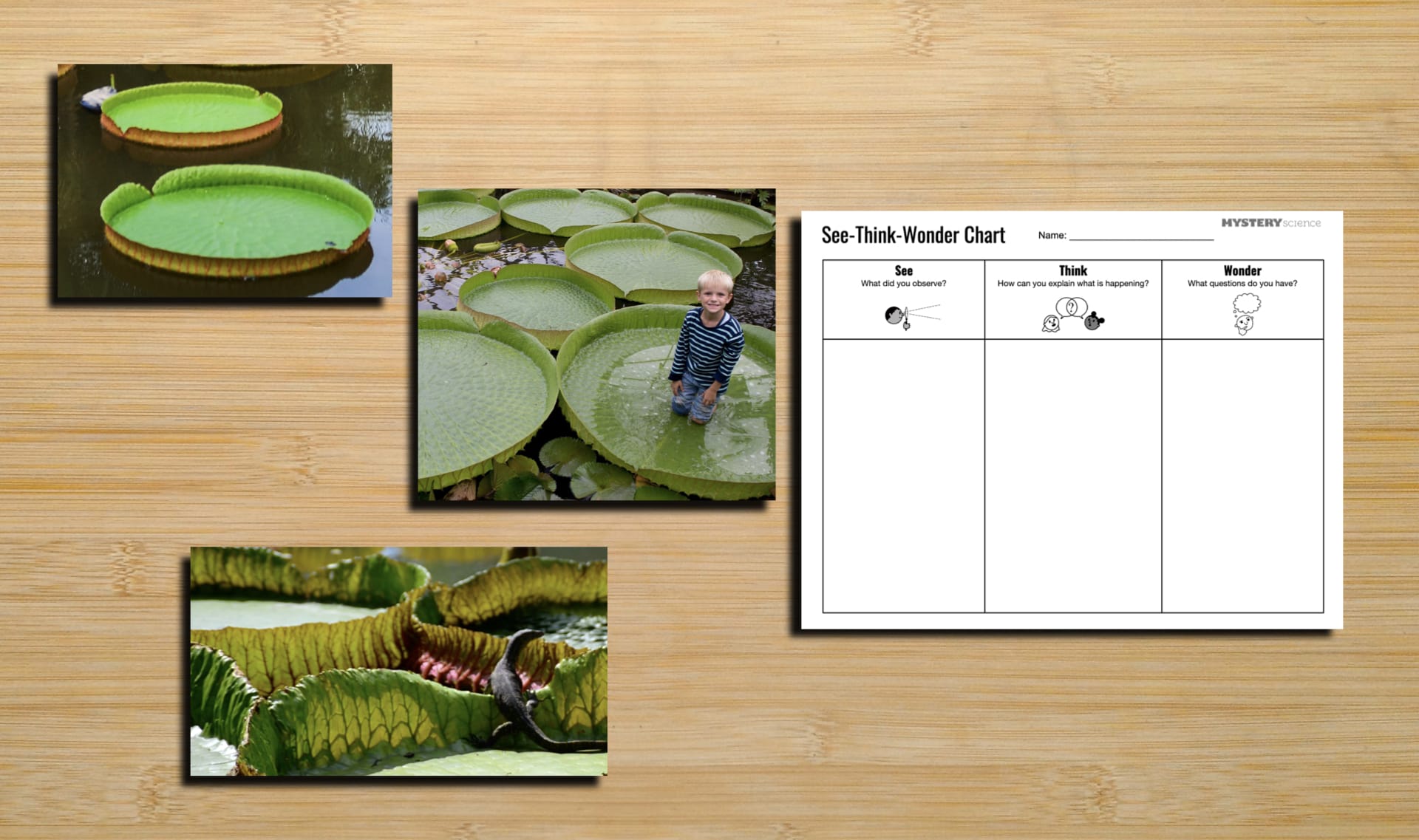
What do you wonder about these floating things? Your teacher will record your
questions in the Wonder column.
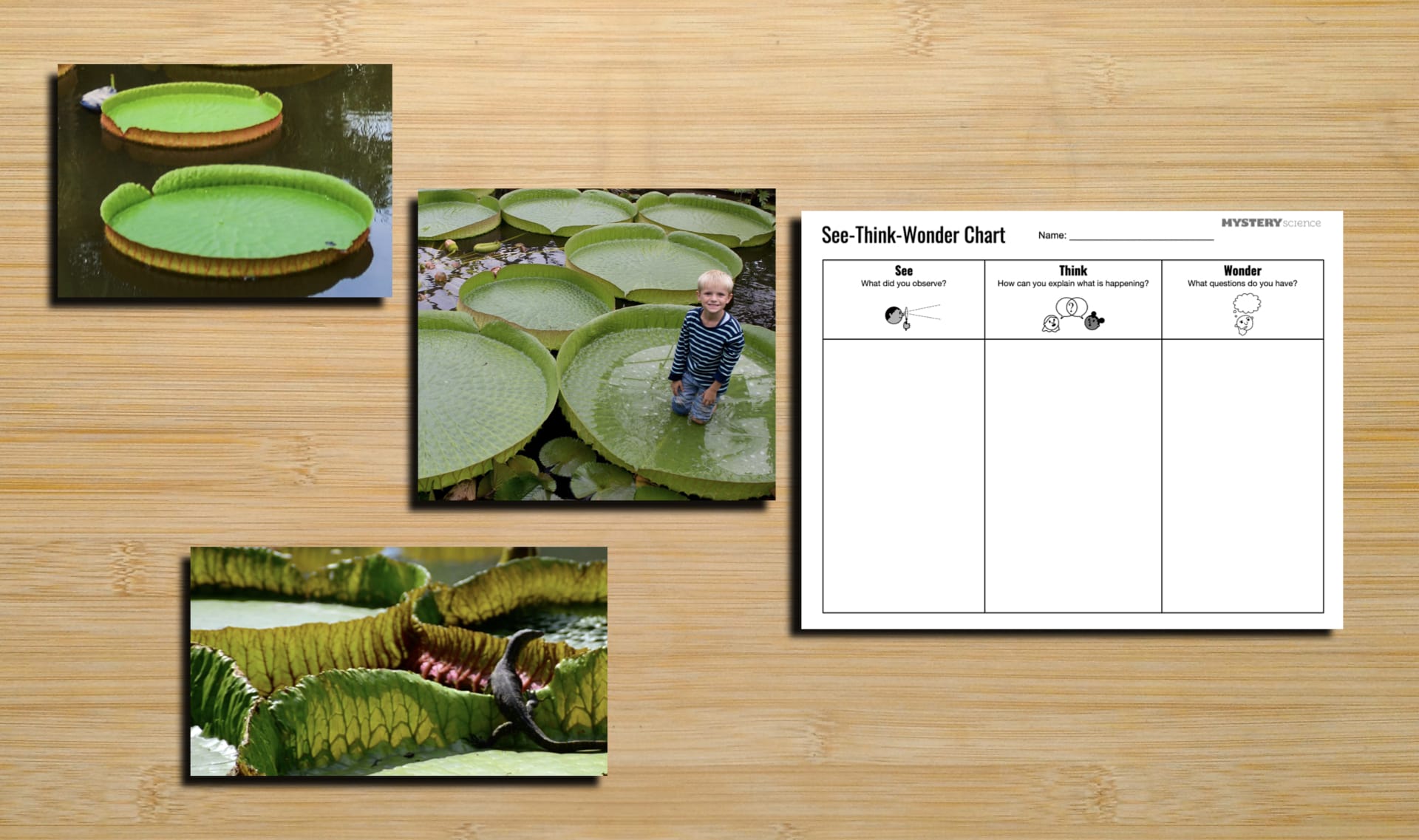
Save your See-Think-Wonder Chart. You will come back to it after the next lesson.
It's time to do some investigations! In this unit, you'll explore many things about plants.
At the end of the unit, you will use everything you've learned in a fun project.
Have fun, and stay curious!


